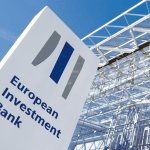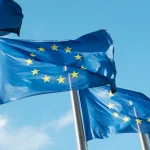Puro.earth, Indonesia Partner to Advance Biochar Carbon Removal Framework

- Puro.earth signs Letter of Intent with Indonesia’s Environment Ministry and EPA to strengthen biochar carbon removal standards.
- Collaboration aims to align Indonesia’s carbon governance with Paris Agreement objectives and accelerate verified carbon credit projects.
- Biochar recognized as a scalable pathway for durable carbon removal and local sustainable development.
Advancing High-Integrity Carbon Markets
Carbon removal platform Puro.earth has signed a Letter of Intent (LoI) with Indonesia’s Ministry of Environment and the Environmental Protection Agency to advance the country’s use of biochar within its national carbon governance framework. The agreement formalizes a joint effort to develop high-integrity methodologies for durable carbon removal and support project validation in line with the Paris Agreement.
Indonesia, a major agricultural economy with significant biomass resources, has identified biochar — a carbon-rich material produced by heating organic waste — as a key component of its long-term decarbonization strategy. The collaboration is expected to accelerate the country’s ability to generate verifiable carbon credits while supporting sustainable land-use practices.
Building a Science-Based Foundation
The partnership centers on Puro.earth’s biochar methodology, a science-driven framework used globally to certify durable carbon removal. The methodology quantifies long-term carbon storage from biomass conversion and sets standards for monitoring, verification, and lifecycle assessment.
Antti Vihavainen, Co-Founder and Vice Chairman of Puro.earth, who joined the virtual signing, described the agreement as “the beginning of a meaningful collaboration.” He said both parties were “recognizing the importance of high-integrity carbon markets and reaffirming our commitment to work in line with the Paris Agreement.”

He added that biochar “is a powerful, science-based tool for durable carbon removal while delivering co-benefits for sustainable development, local communities, and innovation.”
Indonesia’s Carbon Governance Push
The agreement comes as Indonesia strengthens its domestic carbon governance system. The government is building a national carbon registry and market mechanism designed to ensure environmental integrity while attracting private-sector participation.
The Ministry’s Deputy of Climate Change and Carbon Governance has highlighted the importance of international collaboration to help establish credible measurement and verification systems for carbon removal technologies. Partnerships with platforms such as Puro.earth offer access to established methodologies and verification expertise critical for global market alignment.
Indonesia is also positioning biochar within its wider land-use and agricultural policies, linking rural economic development with decarbonization goals. The country’s biomass potential — from forestry residues to crop waste — gives it one of Southeast Asia’s largest untapped carbon removal capacities.
RELATED ARTICLE: Puro.earth Surpasses 1 Million Tonnes of CO₂ Carbon Removal
Role of Puro.earth in Global Carbon Markets
Puro.earth, founded in Finland and acquired by Nasdaq in 2021, operates one of the world’s leading registries for engineered carbon removal. Its methodologies underpin the issuance of Puro CO2 Removal Certificates (CORCs), which have been purchased by global corporations seeking durable offsets in voluntary and compliance markets.
The platform has focused on ensuring transparent accounting of carbon removal processes, with third-party validation and traceable issuance. Its collaboration with Indonesia extends this model into emerging markets where standardized frameworks are still evolving.
Implications for Investors and Policymakers
The LoI between Puro.earth and Indonesia reflects a broader trend: governments in the Global South are increasingly working with private certification systems to strengthen domestic climate infrastructure. By aligning methodologies with international standards, these partnerships can unlock access to global carbon finance while improving the credibility of national climate reporting.
For investors and corporate buyers, such agreements help de-risk emerging carbon markets by ensuring verifiable data and governance oversight. For Indonesia, it offers a pathway to monetize its natural resource base while achieving durable emissions reductions.
Toward a More Integrated Global Carbon Framework
As carbon markets mature, interoperability between national systems and independent certification platforms will be essential to scale climate finance. The Puro.earth–Indonesia collaboration may serve as a template for other emerging economies seeking to integrate engineered removals into their regulatory systems.
Both parties emphasized that beyond carbon accounting, the partnership aims to drive innovation and local benefits — from soil regeneration to community employment. The project aligns with Indonesia’s stated objective of reaching net zero by 2060 or earlier.
By anchoring biochar within transparent, Paris-aligned governance, Indonesia is taking a tangible step toward developing a credible carbon removal market capable of attracting global capital while advancing local sustainability priorities.
Follow ESG News on LinkedIn









